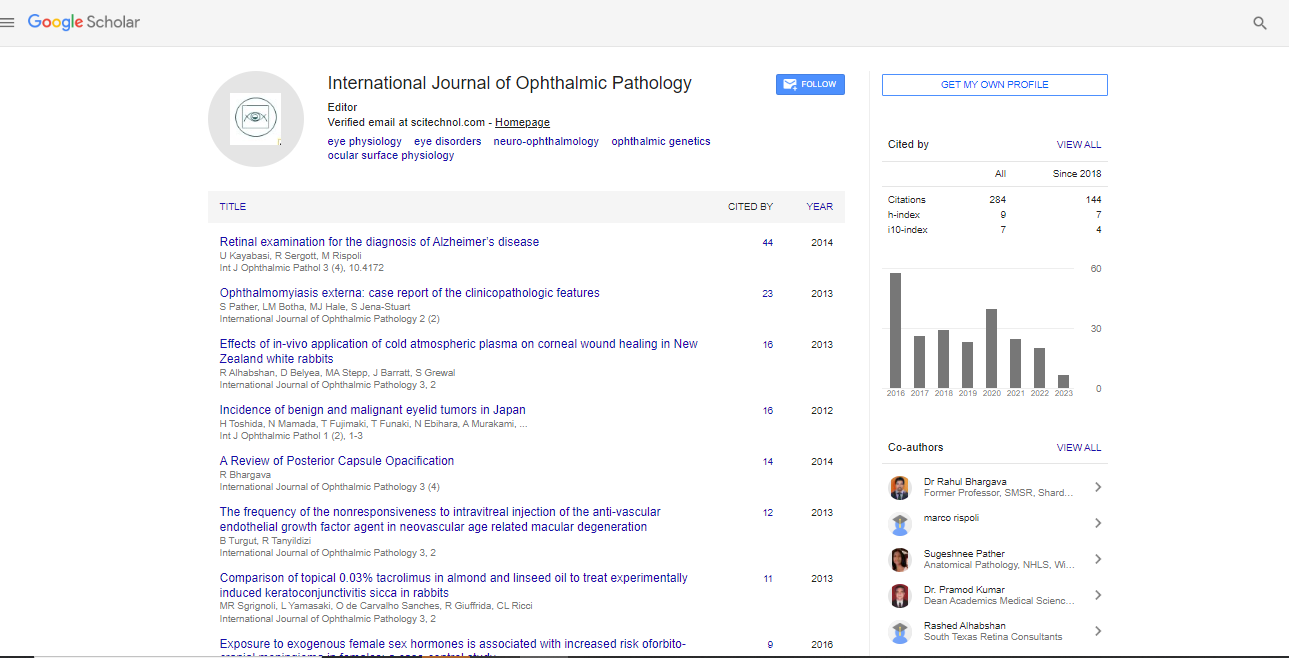Circadian rhythms and fatty acids metabolism in retinitis pigmentosa: Oxidative stress altered pathways by a RNA-Seq analysis
Luigi Donato, Concetta Scimone, Simona Alibrandi, Carmela Rinaldi, Rosalia D’Angelo and Antonina Sidoti
University of Messina, Messina, Italy
IEMEST, Italy
: Int J Ophthalmic Pathol
Abstract
Retinitis pigmentosa (RP) is a very heterogeneous, inherited ocular disorder group characterized by progressive retinal degeneration. Oxidative stress is one of the principal causes of RP, and mainly involves the retinal pigment epithelium (RPE), whose circadian rhythmicity is needed for retinal support. RPE degeneration due to oxidized unsaturated fatty acids accumulation from spent photoreceptor leads to blindness. In order to clarify oxidative stress role on RP, we realized a comparative transcriptome analysis of human RPE cells, treated with oxLDL and untreated at four time points (1 h, 2 h, 4 h and 6 h). An ion ProtonTM sequencer was used for thrice repeated experiment, and data analysis was realized by CLC Genomics Workbench software. The most interesting altered pathway was circadian rhythms with the highest gene expression changes at 2 h, and the lowest at 4 h and 6 h. The explanation may involve pathway master genes that, once dysregulated, impair cell rhythms, disrupting RPE. Only few cells, already compromised, could survive, showing late involved genes alterations. Moreover, circadian pathway shared many altered genes with fatty acids metabolism pathway, whose nuclear transcription factor Y–subunit A (NF-YA) represented the most changed one. NF-YA increased expression could improve the fatty acid synthase signaling pathway, but could also repress mitochondrial respiratory genes, in a final attempt to reduce redox errors and increase RPE survival. These data suggest that many new genes, involved in pathways not yet associated with RP, such circadian rhythms, but directly related to already known causative ones, could play a role in the etiopathogenesis of this disease.
Biography
Luigi Donato completed his Graduation in Biology at University of Messina. At present, he is pursuing his PhD in Applied Biology and Experimental Medicine. He has published more than 10 papers in reputed journals and participated in more than 10 international congresses.
 Spanish
Spanish  Chinese
Chinese  Russian
Russian  German
German  French
French  Japanese
Japanese  Portuguese
Portuguese  Hindi
Hindi 